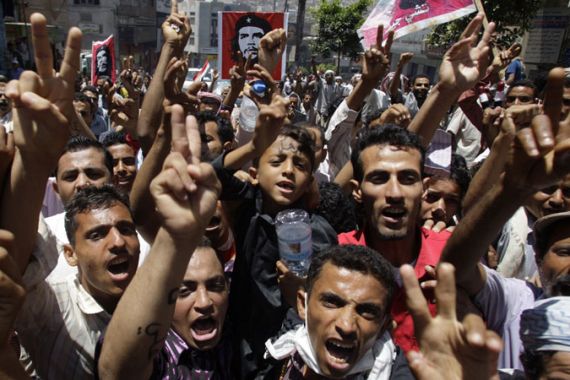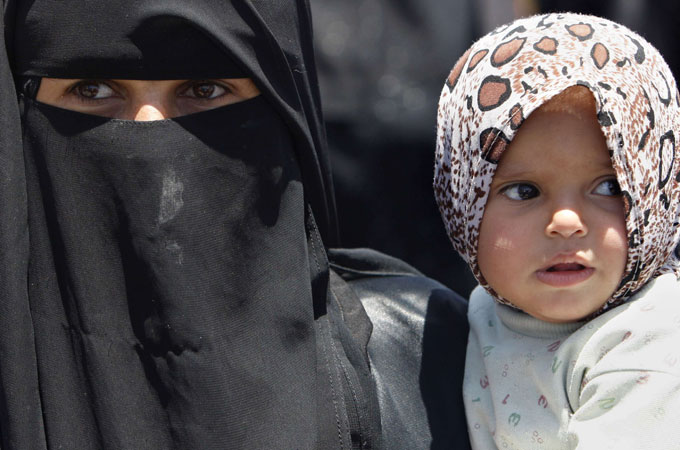Yemenis decry immunity for president
Tens of thousands hold protests against mediation by the GCC aimed at ending political crisis.

 |
| Yemenis have seen months of protests calling for President Saleh to step down [Yemen] |
Tens of thousands of Yemenis have held protests against a mediation proposal by Gulf nations aimed at ending the political crisis in the country.
Demonstrations were held across Yemen on Tuesday objecting to the proposal because it offers Ali Abdullah Saleh, Yemen’s president, immunity from prosecution.
Protesters in Yemen have for months been calling for Saleh to step down over the country’s lack of freedoms and extreme poverty.
The mediation proposal, which was put forward by the six-nation Gulf Cooperation Council (GCC), called on Saleh to transfer power to his deputy, but gives no specific timeframe for him to leave office.
It also included immunity from prosecution for Saleh and his family.
“The initiative does not clearly mention the immediate departure of the head of the regime and it did not touch on the fate of his relatives who are at the top military and security agencies that continue killing the peaceful protesters,” the anti-government Civil Alliance of the Youth Revolution said in a statement.
The alliance, which includes 30 youth groups, said the GCC proposal was an attempt to abort the revolution.
Proposal rejected
Saleh has accepted the Gulf framework, although state media initially suggested the government would reject it.
General Ali Mohsen, a kinsman of Saleh who defected to the opposition and whose military units are protecting protesters in Sanaa, has welcomed the GCC plan.
But Yemen’s opposition parties rejected the proposal and have called on the mediators to spell out when Saleh should step aside.
“The Gulf states need to clarify the meaning of the transition of power,” Mohammed Qahtan, an opposition spokesman, said on Al Arabiya TV on Tuesday.
He said that GCC states had not yet set a date for proposed mediation talks between Saleh and the opposition, expected to be held in Riyadh.
“We are awaiting their call … We have not received [a date], we are awaiting their call, [to see] if there is a new suggestion from them.”
A transfer of power could technically last until the next presidential elections scheduled for 2013. Saleh has offered new parliamentary and presidential elections this year as part of political reforms, but says he should stay in power to oversee the change or hand over to what he calls “safe hands”.
While protesters want Saleh out now, some in the opposition – which includes Islamists, leftists and Arab nationalists – are prepared for him to stay in power for several months more before handing over to his vice-president.
Political struggle
A transfer of power could technically last until the next presidential elections scheduled for 2013.
Saleh has warned of civil war and the break-up of Yemen if he is forced from power and has offered new parliamentary and presidential elections this year as part of political reforms.
Al Jazeera’s correspondent in Sanaa said: “This has always been his position – the key words are ‘within the constitution’ which could either mean through elections at the end of the year, or if he chooses to resign it must be accepted by parliament.”
Speaking to Al Jazeera, Najib Ghaniem, a senior member of the opposition Islah party, said: “We are only interested in the end to the agony of our people.
“If this initiative means that Saleh steps down, then all issues can be put on the table to discuss later on.”
Saleh has been in power since 1978 and has faced fierce protests demanding his departure since late January.